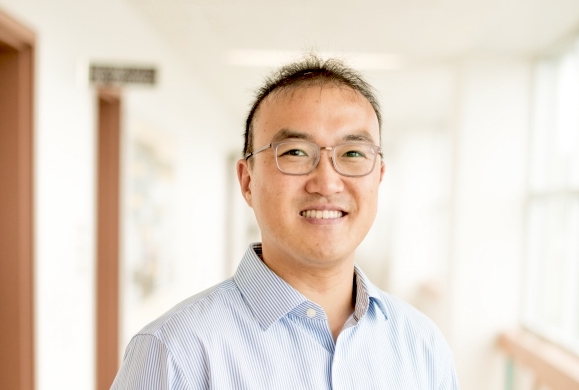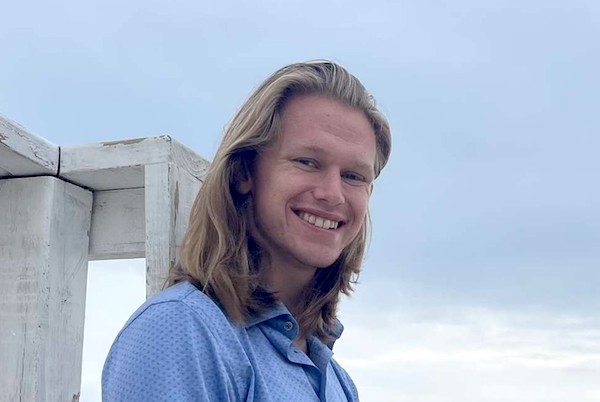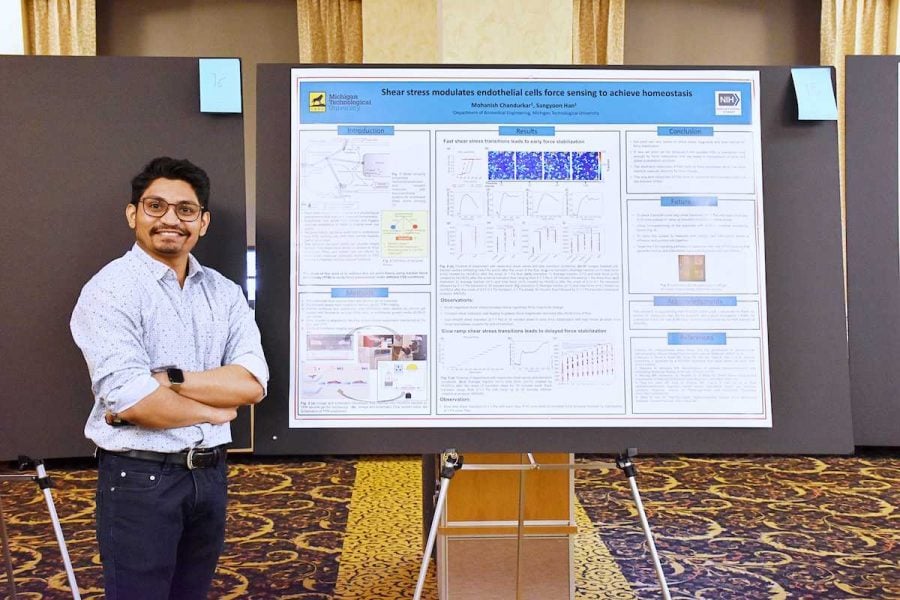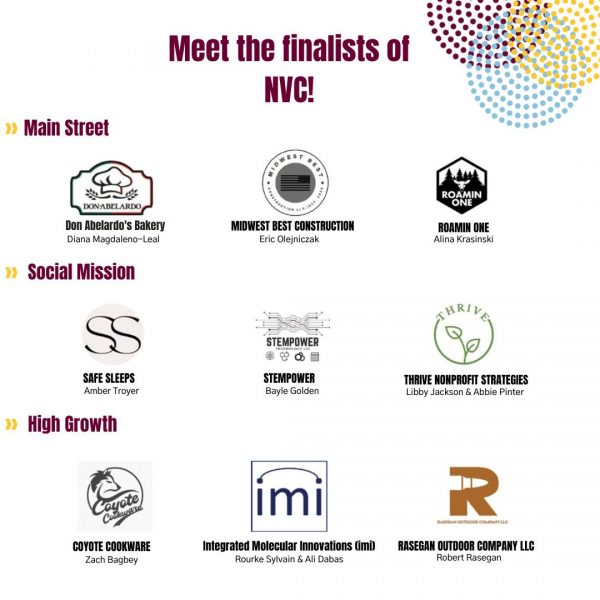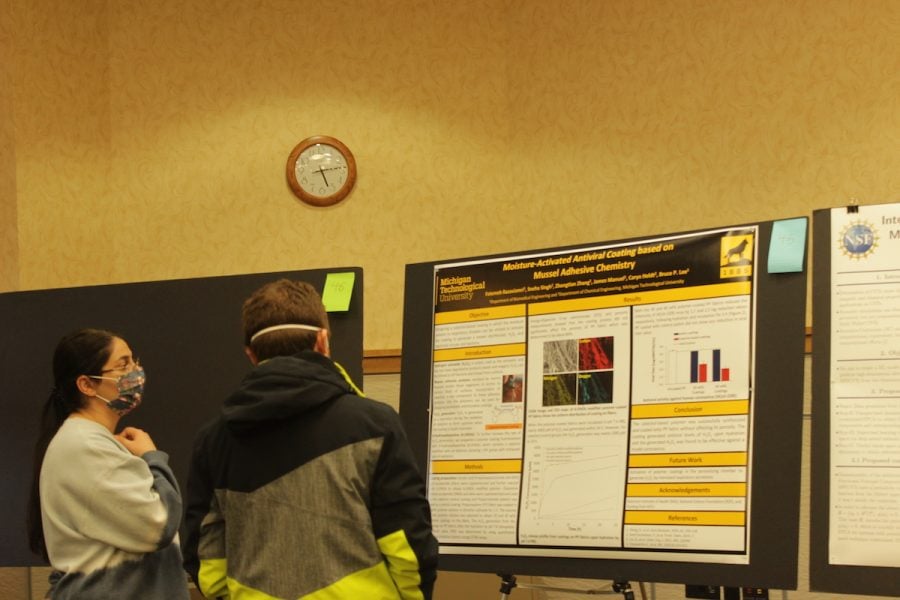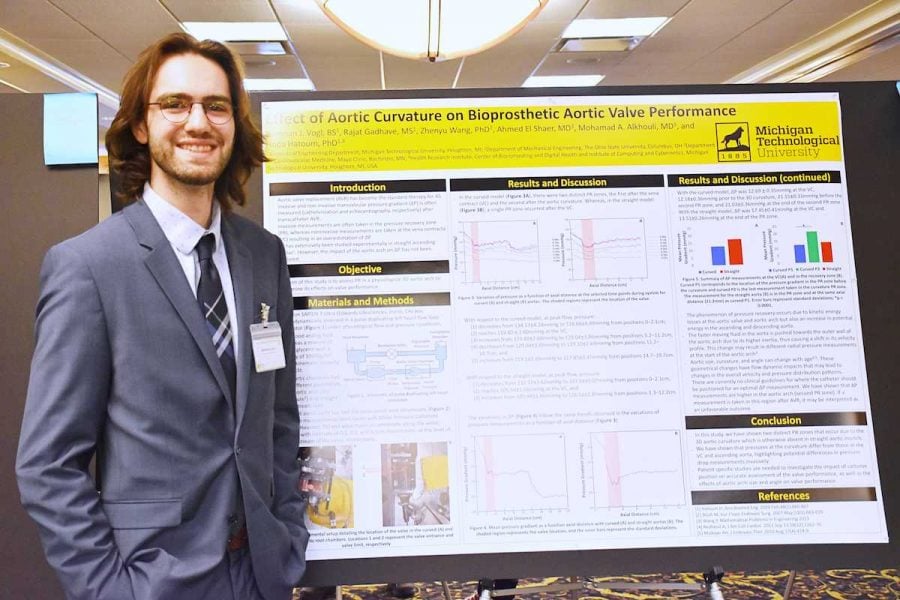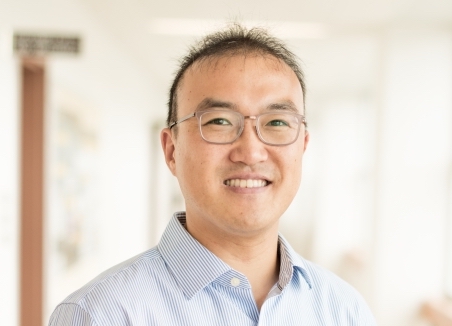The Michigan Tech Graduate Research Colloquium (GRC) and Annual Banquet 2024 was held on March 27.
Congratulations to the GRC winners.
Oral Presentation
First Place: Natalie Nold
Second Place: Nithin Allwayin
Third Place: Brilynn Janckila
Poster Presentation
First Place: Jessica Czarnecki
Second Place: Cody Tuftee (BME)
Third Place: Victoria Santillan (BME)
Second Place Poster
Drug Eluting Microgels as an Immunomodulatory Corneal Wound
Sealant
Authors: Cody Tuftee, Saad Asim, Gary Hin-Fai Yam, Muhammad Rizwan
Poster Extract
- Corneal damage is one of the leading causes of blindness with less than 1 in 70 victims able to undergo a correctional cornea transplant due to global donor shortages; hence, there is a need to develop synthetic alternatives.
- Sustained delivery of therapeutic molecules to the cornea proves a challenge due to natural defense mechanisms constantly seeking to clear away foreign materials from the eye.
- The proposed corneal wound sealant seeks to provide a platform for multiple immunomodulatory drugs to be released at different rates to regulate cornea repair.
Third Place Poster
Study of Breast Cancer Cells under Biophysical and Metabolic Cues
Authors: Victoria Santillan, Samerender Nagam Hanumantharao, Stephanie Bule, Carolynn Que, Brennan Vogl, Marina Tanasova, Smitha Rao
Poster Extract
- Cancer cell reprogramming is a complex process driven by many factors.
- By culturing cells in 3 dimensional (3D) scaffolds with specific morphologies, we can study how the behavior between cells and protein expression changes.
- We studied how the scaffolds affected cell-cell interactions and cell-matrix interactions, in the presence of the probe.

